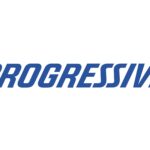Billionaire Ira Rennert has filed a $214 million malpractice lawsuit against his former law firm, after a jury found him liable for looting his magnesium company to build a huge mansion in New York’s Hamptons.
Renco Group Inc, Rennert’s holding company, said neither it nor the mining mogul would have been liable had Kaye Scholer and partner Peter Haveles objected to faulty jury instructions that Rennert has said led to an “irrational” February 2015 verdict.
The lawsuit, filed late Monday in the state supreme court in Manhattan, may be the last chance for Rennert, 83, to avoid a big payout, after the U.S. Supreme Court in October rejected his appeal of the verdict and resulting $213.2 million judgment.
Both had been upheld by the federal appeals court in Manhattan last March.
Arnold & Porter Kaye Scholer, the successor firm to Kaye Scholer, did not immediately respond on Tuesday to requests for comment. Haveles, now a partner at Pepper Hamilton, referred a reporter to his former firm.
Rennert is worth $3.8 billion according to Forbes magazine, and has denied the looting allegations. His current lawyer, Steven Kaufman, was unavailable for comment on the lawsuit, which also seeks interest.
The case arose from the 2001 bankruptcy of Magnesium Corp of America.
Lee Buchwald, MagCorp’s bankruptcy trustee, accused Rennert of diverting money from the now-defunct company to help build his 21-bedroom, 43,000-square-foot mansion known as Fair Field on 65 oceanfront acres in Sagaponack, on Long Island.
The property was valued last March at $248.5 million, real estate records show.
Jurors in Manhattan federal court found Rennert and Renco liable for $118 million to the MagCorp estate. The trial judge, Alison Nathan, later added interest.
Rennert has long said the verdict made no sense because jurors thought MagCorp was solvent at the time of the alleged transfers.
In Monday’s complaint, Renco said its former lawyers wrongly failed to object both to jury instructions that led to the “inexplicably inconsistent” verdict, and to the jury’s dismissal after the verdict was read.
Had the lawyers spoken up, the jury would have announced a verdict “consistent with the 27 interrogatories it answered finding 27 separate times that the (Renco) subsidiaries were not insolvent or inadequately capitalized,” Renco said.
The case is Renco Group Inc v Kaye Scholer LLP et al, New York State Supreme Court, New York County, No. 150184/2018.
(Reporting by Jonathan Stempel in New York; Editing by Steve Orlofsky)
Was this article valuable?
Here are more articles you may enjoy.


 Undercover St. Louis Officer Beaten by Colleagues Awarded $23.5M
Undercover St. Louis Officer Beaten by Colleagues Awarded $23.5M  Cargo Owners in Baltimore Disaster Face ‘General Average’ Loss Sharing, MSC Says
Cargo Owners in Baltimore Disaster Face ‘General Average’ Loss Sharing, MSC Says  USAA to Lay Off 220 Employees
USAA to Lay Off 220 Employees  Progressive Records Five-Fold Increase in Q1 Net Income
Progressive Records Five-Fold Increase in Q1 Net Income 

